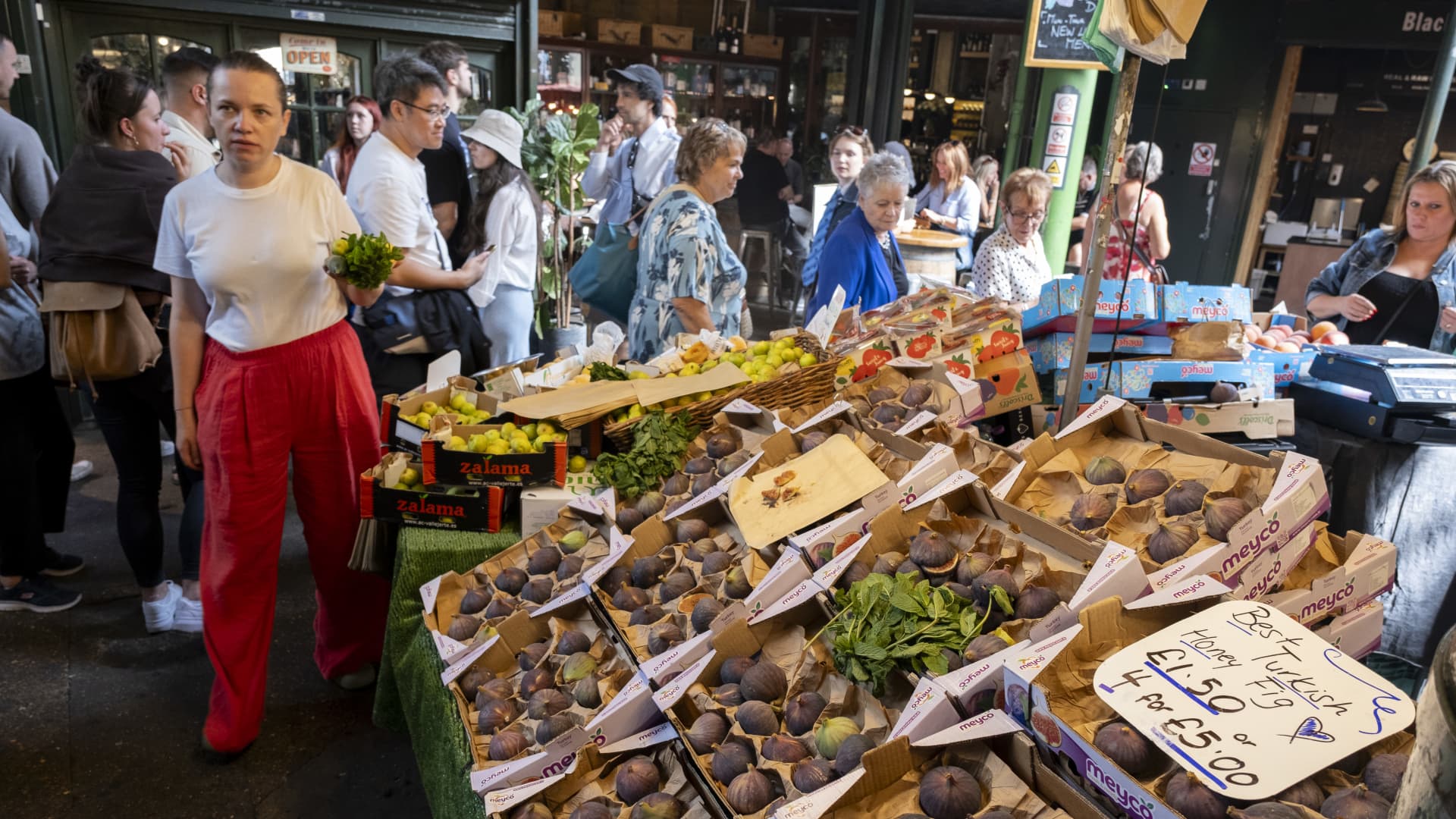
Exploring Borough Market and Recent UK Inflation Trends
On August 27, 2024, the vibrant fruit and vegetable stall at Borough Market in London, United Kingdom, showcases a haven for food enthusiasts. Situated in Southwark, Borough Market stands as one of London’s largest and oldest food markets, with its origins tracing back to at least the 12th century.
Photo Credit: Mike Kemp | In Pictures | Getty Images
In recent economic news, the UK’s inflation rate surged to 3% in January, surpassing analysts’ forecasts according to data released by the Office for National Statistics (ONS) on Wednesday. Analysts surveyed by Reuters had anticipated an inflation reading of 2.8% over the year leading up to January.
The Consumer Price Index (CPI) had previously recorded a lower-than-expected rate of 2.5% in December, along with a further slowdown in core price growth. Core inflation, which excludes the more volatile categories of energy, food, alcohol, and tobacco, increased by 3.7% over the twelve months leading to January, up from 3.2% in December. The annual core services rate notably rose from 4.4% to 5.0%, as reported by the ONS.
Grant Fitzner, the chief economist at ONS, remarked, "Inflation showed a significant uptick this month, reaching its highest annual rate since March of last year. This increase can be attributed to airfares not declining as sharply as typically expected during this season, partially due to flight schedules around Christmas and New Year. This represents the smallest January decline we’ve seen since 2020."
He added that after a drop in expenses last year, costs associated with food and non-alcoholic beverages have risen sharply, particularly impacting meat, bread, and cereals. Additionally, private school fees spiked nearly 13% this month due to new VAT regulations.
In response to the latest inflation figures, UK Chancellor Rachel Reeves emphasized her commitment to fostering economic growth and increasing financial support for families, acknowledging the ongoing struggles many households face in managing their finances.
Meanwhile, the British pound remained relatively stable against the dollar, trading at $1.2615 following the inflation report.
Economic Outlook for Growth
The recent rise in CPI inflation was anticipated, though the extent of the increase took many by surprise, noted Ruth Gregory, deputy chief UK economist at Capital Economics. "It is widely recognized that escalating energy prices will likely push CPI inflation above 3% in the coming months. However, we believe this will not deter the Bank of England from further rate cuts. In fact, we expect CPI inflation to dip below 2% by 2026 as some temporary factors recede and a sluggish economy contributes to a decline in services inflation," she shared in an email.
Gregory cautioned, however, that if inflation proves to be more persistent than anticipated, the pace of interest rate cuts may be slower than expected.
This revised version maintains the essence of the original while enhancing readability and ensuring that it is more SEO-friendly.









